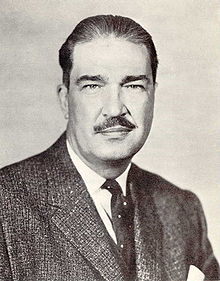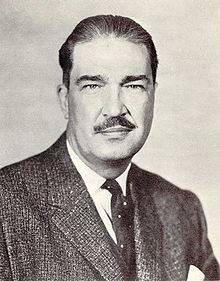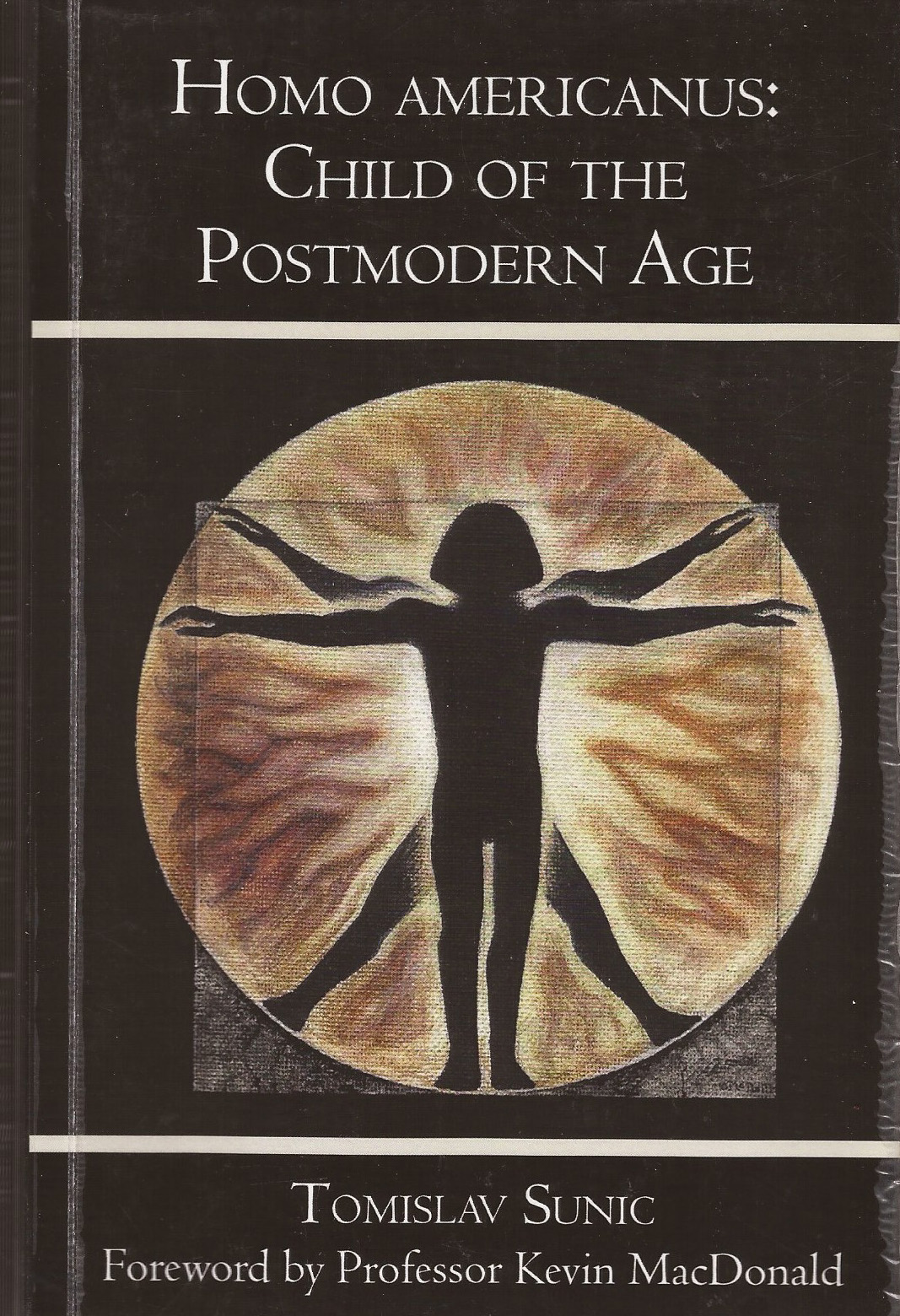White identity politics is a form of heresy, and heresy has grave consequences. Advocating White nationalism or merely defending White interests often results in a loss of social standing. Moral cowards, amoral sycophants, and racial traitors are rewarded while heroes and righteous guardians are demonized. Pretending that Whites are social constructs or have no legitimate interests to defend is accepted, even celebrated, in a society infested with anti-White multiculturalism. White racialists realize that the cornucopia of cultures is designed to exclude any White culture, and the future rainbow of races is actually a muddled mess of miscegenation. It is therefore a tremendous challenge to remain in steadfast support of the White extended genotype. The anti-White opposition is well-funded, well-organized, malicious, and persistent.
White advocacy is beset on all sides. Campaigning against White genocide attracts derision and scorn from anti-Whites. Lamenting the decline of the White population into minority status is attacked as intolerance. Merely calling attention to, let alone denouncing, the maliciously disproportionate amounts of violent interracial crime committed against White people is paradoxically described as hate. Protecting the continuity of family lineage by expecting exclusively White marriages and White procreation is seen as backwards, provincial, or outdated. Suggesting that many trends or ideas that harm White interests have been disproportionately created, organized, disseminated, or financed by Jewish interests can lead to accusations of insanity or mental instability.
This derision, scorn, and accusations of intolerance, hate, and insanity are reactions that require White nationalists to have a thick skin in order to maintain their viewpoints. It is hard to be a heretic. But the requisite resilience to carry forward is about more than insensitivity to insults or threats. It is inspired by the love of truth. White racialists know that race is real and that it has important consequences for civilization and ethnic genetic interests. White nationalists realize they are being systematically dispossessed and ethnically cleansed from their homelands. Defenders of White identity understand that there is nothing hateful or unhealthy about wanting to continue their heritage by having White babies in White societies.
The steely resolution that guides a White nationalist is a personality trait or perhaps a spiritual constitution that values eternal truth more than ephemeral social standing. A patriotic White man understands that truth can be directly opposed to popular opinion, and that such a situation is not without historical precedent. An exemplary White man is willing to act in accordance with that wisdom. A heroic White man can marshal these convictions into effective action and change the dynamics of society. The White race is in desperate need of more heroes.
White people are known to be more individualistic than other races. In a White-dominant society, free from ethnic or racial competition from non-White groups, this individualism helped propel White people beyond the established limits of science, technology, philosophy, and religion. The individualist refusal to conform to the “popular consensus”—which always opposes scientific breakthroughs or heretical ideas—is precisely why so many White historical figures persist within the collective memory as titans of Western civilization. Nobody remembers a conformist, but everybody remembers a successful catalyst of righteous revolution. The reward for success in such a struggle is immortal fame. How could it be any other way?
Why would anyone remember Galileo Galilee if he were not individualistic and self-assured enough to confront the ruling dogma of a geocentric universe? Whose bookshelf would carry the works of Aleksandr Solzhenitsyn if he decided to bow his head to Soviet oppression because speaking out was not worth going to the gulag? Who could call themselves Protestant if Martin Luther lacked the courage and conviction to stand before the Catholic Church and criticize it without fear? All of these White men had radical ideas that stood directly against the ruling orthodoxies of their societies. These men would be scattered to the winds of time had they not found everlasting fame by tenaciously promoting important ideas despite intense societal opposition. These were all rebels with a cause, and that cause was truth. Truth is heresy before it is accepted as truth, so all of these men were once called heretics.
White nationalists face similar pressures because being pro-White is heresy in modern America. Professors will express hostility to ideas about White interests, and this may translate to lowered grades or a denial of tenure in the academic world. Employers often terminate workers who openly defend the civil rights of Whites in their private lives. Former friends may cut ties when they sense the imminent risks to social standing that follow from associating with a racially-conscious White person. Sometimes even immediate family members will choose material security and peer-group acceptance rather than support a relative who is protecting the entire extended family. Heresy has social consequences, as Galileo, Solzhenitsyn, and Luther knew all too well.

“Racist!” is the modern equivalent of “heretic!” Words like “intolerance” and “hate” are used as shibboleths to shout down dissension and preclude debate. The words have changed, but the methods of social ostracism remain the same. Cry “heretic!” or its equivalent, and let the crowd take care of the rest.
History is replete with examples of entrenched orthodoxy stultifying new ways of thinking in an oppressive manner. In more primitive times, the mystical shamans or oracles consulted with the gods in order to divine wisdom for tribal consumption. To deny the oracle’s wisdom, or to suggest the shaman was merely influenced by psychotropic drugs, was grounds for ostracism from the tribe. Only a heretic would oppose the dominant spiritual class because it was social suicide.
Skip forward thousands of years. Oracles and shamans became priests. The mystical priests consulted with God and the Bible in order to divine wisdom for public consumption. To deny the priests’ monopoly on the word of God, or to suggest they were power-hungry sycophants, was grounds for excommunication from the Church and society—a lesson Martin Luther learned the hard way. The charge of heresy was used to preclude reasonable debate, just as racism or anti-Semite is used today.
The modern ruling orthodoxy follows political correctness—the anti-White bastard child of Cultural Marxism. Nietzsche declared the death of God, but nature abhors a vacuum. In His place, the elite cabals in academia, finance, media, and politics erected a new totem pole to worship and venerate. Whether it is called liberalism, egalitarianism, Cultural Marxism, multiculturalism, or diversity, the dynamics of enforcing this untenable, genocidal, and anti-White worldview remain the same: ridicule, isolation, defamation, prosecution, ostracism, or humiliation— but never open debate. Heresy is not to be debated.
While most of humanity has evolved beyond burning heretics at the stake or performing ritual human sacrifice, the same procedural thought control remains, consistently corrupting and subverting impressionable White minds. Anyone who denies the existence of ritual sacrifice is not looking closely enough. If an influential figure violates the dogma of multiculturalism, the gatekeepers will quickly close ranks. Instead of ominous tribal drumbeats, the background music will be cries of “racist!” or “hater!” or “anti-Semite!” as the eager executioners prepare the sacrificial altar. Instead of carving out the heretic’s heart, the mainstream media and its supporters will try to ruin the heretic’s reputation as he is defamed as an intolerant, hateful, and bigoted person.
Public persecution of heretics persists in the modern age. Remember that the public sacrifice is also a warning. It is a powerful message to the rest of the group: heresy has serious consequences.
Unfortunately, the heretical path of White nationalism, White identity, and White interests is a narrow one. The trailblazers of the movement must deal with the prickly thorns, rough terrain, and back-breaking labor needed to clear the brush so others may be enticed to follow. At this stage, it is inevitable that some people will sever social connections with a pro-White person once the nationalist motivations are made clear. It seems strange that these same people would gladly continue the friendship, or express glowing admiration, if the cause at issue concerned the rights of any other racial group except for White people. This promiscuous out-group altruism is at the height of absurdity when an ostensibly White person rejects the company of another White person who advances both of their shared interests. But this is the reality of anti-White multiculturalism. The perverted ideas that have poisoned American discourse are designed to marginalize, ostracize, and demonize any remaining White person who dares to stand against the rolling tide of White dispossession.
What keeps a White nationalist from throwing in the towel? Why trudge on, when the road ahead is uphill and laden with obstacles at every turn? Beyond an undying love for one’s people, it is the same determination that drove Henry Ford to publicize Jewish subversion in the Dearborn Independent despite the imminent threat it posed to his financial interests. It is the same zeal for truth and liberty that compelled Thomas Jefferson to pen the Declaration of Independence.
The same love for truth burns in the heart of every White nationalist, and no amount of social pressure, slander, or temporary isolation is enough to extinguish the flame. The fuel source is the righteous indignation that arises when one man recognizes a cosmic injustice and is willing to fight through Hell to rectify it. The temptation of capitulation is great, the course of retreat is enticing, and the punishment for having the gall to continue is severe, but the footprints of so many great men of the past are enough to inspire forward progress. Spiritual man values virtue infinitely more so than material comfort or fleeting adoration from those not worthy to provide it. Patrick Henry confirmed his status as a spiritual man when he thundered his revolutionary call-to-arms to the Virginia House of Burgesses: “give me Liberty or give me Death!”
The movement for White identity and White interests needs more spiritual men. This is not intended to be a criticism of capitalism, profits, or material success. White nationalism needs donors, financiers, talented businessmen, and creative capitalists. But it is an inescapable conclusion that defending White people is not a get-rich-quick scheme, and it is not guaranteed to win more friends than enemies in the short term. Arthur Schopenhauer said “All truth passes through three stages. First, it is ridiculed. Second, it is violently opposed. Finally, it is accepted as being self-evident.” White identity politics is somewhere between ridicule and violent opposition. The goal is to move towards Schopenhauer’s third stage. It will not be easy.
White nationalism is not for the weak, the timid, the gullible, or the emotionally dependent—instead, these attributes describe the demoralized and deracinated White person. The strong have always helped the weak; right now, the White race is in a position of weakness. Those who have not fallen under the spell of White guilt must reawaken their White brothers and sisters. Those who have looked beyond the horizon and gazed upon the possibility of White extinction must warn the unenlightened about the reality of White genocide. Those who value truth and who retain a healthy sense of White pride and White identity must shoulder the burden for the rest of the group who have been robbed of their heritage.
Leadership, integrity, persuasive ability, organizational skills, and inspirational ideas are sorely needed in the White nationalist movement. The genetic capacity to express these skills and traits has not been lost—yet. The potential remains within the White genotype, whether expressed or dormant, waiting to be expressed in the next familial iteration. Preserve that potential as an irreplaceable treasure. Remember that the spirit of conquest, scientific discovery, opposition to tyranny, bravery in the face of adversity, and most importantly, unshakeable determination in the pursuit of truth are all fundamental aspects of White genetic and historical heritage. The same individualism that has been cruelly exploited to disenfranchise Whites in the midst of hostile minorities can be redirected to fight against the injustice of White dispossession.
The inherently White characteristic of Western individualism can be rescued from its current subversion and redirected towards the improvement of White society. There was a time, not so long ago, when protecting the White race, the White nation, the White village, or the White family was a heroic and virtuous act to be celebrated, rather than a reason to be called a “racist.” This spirit of brotherhood, kin, and race has not been completely extinguished from the White population.
The task ahead is to awaken the yearning for truth, focused determination, sense of justice, ethnic identity, and iron will that resides within the White race. Part of the struggle is to destroy taboos and transform heresy to accepted truth. When that day comes, the titans will stand up, yawn, and throw off the shackles of anti-White multiculturalism with an effortless shrug of the shoulders. Charges of heresy will be ignored and fade away. Unencumbered and emancipated, the White race will continue its eternal march throughout history, breaking philosophical barriers, reaching higher plateaus of health and virility, discovering profound scientific truths, inventing exciting new technologies, and achieving greater zeniths of civilization. Who will lead the charge?





